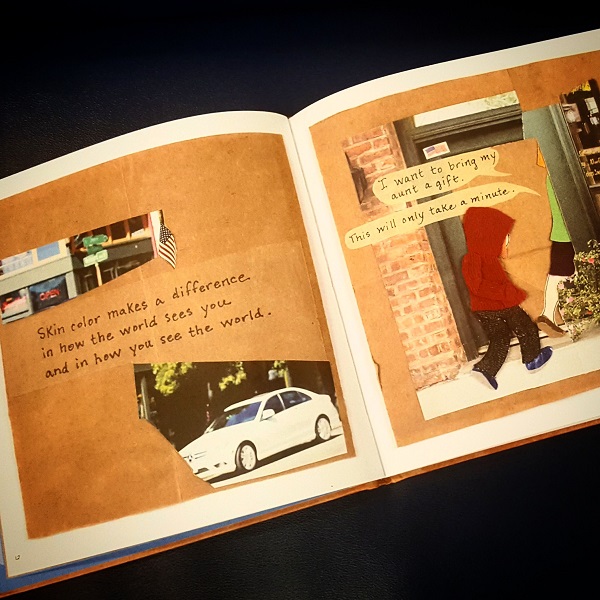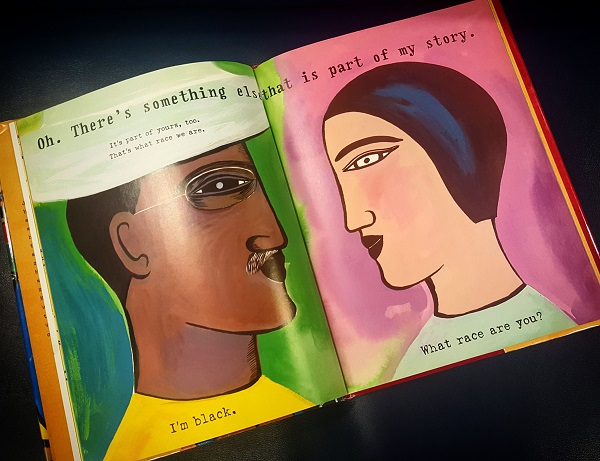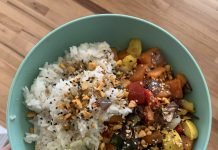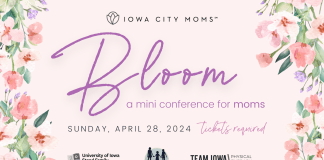Race matters. And if you are a white parent who wants to raise race-conscious white children with an understanding of how race impacts lived experience in real, concrete ways, you need to talk to your children about race: early, often, explicitly, and honestly.
Ignoring race or insisting it doesn’t matter is not a helpful stance.
Children can see how race affects people’s lives, so we need to be willing to talk about racism as something more than individual biases that some random people have as a holdover from a distant past, and acknowledge that we are still dealing with a society steeped in deep institutional racism that is often so ingrained as to be invisible to whites.
These conversations must also go beyond the narrative of “everyone’s equal; let’s celebrate diversity.” I am NOT trying to say that this stance is wrong or harmful. But this cannot be the ONLY way we address race in our white families. We need to acknowledge how race means that everyone is NOT currently equal in America, that racial tensions abound, how white people continue to receive advantages that people of color do not, and what we can do about it.
Books are a great way to open the floor for those difficult conversations. And before you can educate your children about these issues, you need to educate yourself.
(Do young children really notice race? What are some concrete examples of systemic racism? you might be wondering). Because this is such a sensitive topic, I’d also like to dispense with the notion that this booklist is an attempt to force white parents to feel guilty or ashamed–this is an invitation to empower yourself and your children to be actively anti-racist in your daily lives.

Here’s a list of my favorites!
Raising White Kids: Bringing Up Children in a Racially Unjust America by Dr. Jennifer Harvey (Abingdon Press, 2018)
This book is a dense read, but it’s extremely thorough, insightful, and important. Harvey relies on reams of research and personal experience as a parent and educator to discuss how to form a healthy white racial identity, racial socialization, the problems with a “colorblind” approach to teaching children about race, and how to raise white children who are meaningful allies in the fight against racism.
Why Are All The Black Kids Sitting Together in the Cafeteria?: And Other Conversations About Race by Dr. Beverly Daniel Tatum (Basic Books, 2017)
Tatum addresses modern racial tensions and barriers, and reinforces the importance of frank discussions about race and how racial identities are formed if we are to communicate effectively across racial lines. This book also fleshes out the definition of racism as “a system involving cultural messages and institutional policies and practices as well as the beliefs and actions of individuals” and how that functions.
Waking Up White and Finding Myself in the Story of Race by Debby Irving (Elephant Room Press, 2014)
From Amazon’s description: “For twenty-five years, Debby Irving sensed inexplicable racial tensions in her personal and professional relationships. As a colleague and neighbor, she worried about offending people she dearly wanted to befriend. As an arts administrator, she didn’t understand why her diversity efforts lacked traction. As a teacher, she found her best efforts to reach out to students and families of color left her wondering what she was missing.” For anyone who is socially self-conscious and a chronic people-pleaser intimidated by the idea of how to go about forming meaningful cross-racial relationships, this brutally honest book about a woman’s journey to effective anti-racist educator is super enlightening.
I’m Still Here: Black Dignity in a World Made for Whiteness by Austin Channing Brown (Convergent Books, 2018)
This book, a slim volume with short, conversational chapters, would be appropriate for adults as well as kids twelve and up. Brown leads with the story of how her parents chose her name: because it sounds like it could belong to a white man, so on forms such as job applications she would escape bias until at least getting a chance to meet in person. Brown goes on to discuss the white supremacy embedded in American institutions and her experience navigating a white middle-class world in her profession.
So You Want to Talk About Race by Ijeoma Oluo (Seal Press, 2018)
From the National Book Review: “Oluo gives us–both white people and people of color–that language to engage in clear, constructive, and confident dialogue with each other about how to deal with racial prejudices and biases.” Another slim book with short, conversational chapters that would be accessible to teens as well as adults, Oluo guides readers through topics surrounding race–microaggressions, hearing racist jokes, touching someone’s hair, affirmative action–in clear, precise, easy-to-understand language.

Not My Idea: A Book About Whiteness by Anastasia Higginbotham (picture book) (Dottir Books, 2018)
This is a picture book primer for children that invites white children and parents to confront racism, accept that it’s real, and think about what they as white people can do to advance justice. Higginbotham has a mind-blowing gift for distilling extremely complex, potentially wordy topics into deft, frank sentences that are clear and accessible to kids (she has titles in this same series for kids about sex, death, and divorce). This book stands alone in frankly addressing race for white children specifically.

Let’s Talk About Race by Julius Lester (picture book) (HarperCollins, 2008)
Children’s literature heavyweight Julius Lester addresses race head-on (race is part of our individual life “story”) and acknowledges its influence before going on to emphasize our shared humanity.
This will be uncomfortable. You will not get it right all the time or have all the answers.
Race is a dense, extremely personal, extremely complex issue in America, which means these conversations will not be easy and these teachings will not be simple to impart. It’s a delicate balancing act, because while white parents need to speak explicitly and honestly to our white children about race, we also need to be careful of the words we choose, sensitive to the power of what we say. But if we are willing to confront our country’s harmful legacy of white supremacy and the biases we all absorb from our culture, we can try to make change for the future.










